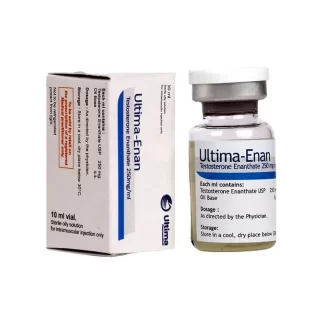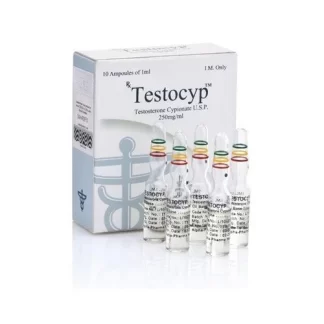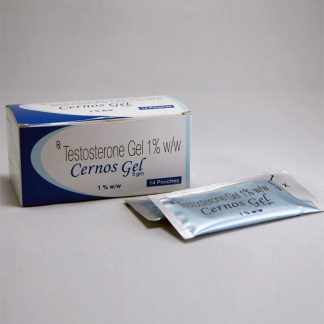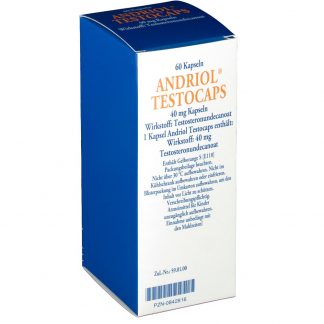Testosterone plays a crucial role in male health and vitality, impacting various aspects of physical and mental well-being. Medical testosterone therapy, often referred to as testosterone replacement therapy (TRT), aims to restore and maintain optimal testosterone levels in men who have low testosterone, also known as hypogonadism.
Using testosterone replacement therapy (TRT) in ordinary older men, rather than bodybuilders, aims primarily to address symptoms of low testosterone (hypogonadism) and improve overall health and quality of life. Here are additional considerations and information relevant to older men using TRT:
Medical Indications for TRT
TRT is typically prescribed for men with clinically low testosterone levels, which may be identified through blood tests and confirmed with symptoms such as:
- Low libido
- Erectile dysfunction
- Fatigue and decreased energy
- Depression or mood changes
- Loss of muscle mass and strength
- Increased body fat
- Decreased bone density (osteoporosis)
Benefits of TRT for Older Men
- Improved Quality of Life: By alleviating symptoms of low testosterone, TRT can enhance the overall quality of life. Men often feel more youthful, energetic, and emotionally balanced.
- Cardiovascular Health: Some studies suggest that TRT may improve heart health by reducing cholesterol levels, improving blood flow, and reducing inflammation. However, this area is still under research, and results are mixed.
- Cognitive Function: TRT might improve cognitive functions such as memory, attention, and executive function, which can be beneficial as cognitive decline is a concern with aging.
- Physical Health: Enhanced muscle mass, strength, and bone density from TRT can lead to greater physical robustness, reducing the risk of falls and fractures.
- Metabolic Benefits: TRT can improve insulin sensitivity and reduce the risk of type 2 diabetes. It can also help in weight management by reducing fat mass and increasing lean muscle mass.
Considerations and Precautions
- Medical Supervision: It’s crucial for older men to use TRT under strict medical supervision. A healthcare provider should regularly monitor testosterone levels, as well as potential side effects such as changes in red blood cell count, liver function, and prostate health.
- Individualized Treatment: The dosage and form of testosterone (injections, gels, patches, or implants) should be tailored to the individual’s needs and medical condition.
- Potential Side Effects:
- Cardiovascular Risks: There is some evidence suggesting a potential increase in cardiovascular events (heart attack, stroke) with TRT, particularly in older men. Close monitoring of cardiovascular health is essential.
- Prostate Health: TRT can stimulate prostate growth and should be used cautiously in men with a history of prostate cancer or elevated prostate-specific antigen (PSA) levels.
- Sleep Apnea: TRT may exacerbate sleep apnea, so men with this condition should be closely monitored.
- Erythrocytosis: Increased red blood cell count can lead to thickened blood, increasing the risk of clots. Regular blood tests are necessary to monitor this.
- Lifestyle and Health Optimization: TRT should be part of a holistic approach to health that includes a balanced diet, regular exercise, adequate sleep, and management of chronic conditions such as diabetes and hypertension.
Realistic Expectations
- Gradual Improvements: Benefits from TRT can take several weeks to months to become noticeable. Patience and adherence to the treatment plan are essential.
- Non-Performance Enhancing: Unlike bodybuilders, the goal for ordinary older men using TRT is not to enhance performance or achieve extreme muscle growth, but to restore normal physiological levels of testosterone.
- Risk vs. Benefit Assessment: Regular assessment of the benefits versus risks of TRT should be conducted by the healthcare provider. If side effects outweigh the benefits, adjustments to the therapy or discontinuation might be necessary.
Psychological Impact
- Improved Self-Esteem: As physical and emotional symptoms of low testosterone improve, many men experience a boost in self-esteem and confidence.
- Mental Health: Reduction in depression and anxiety symptoms can lead to a more positive outlook and greater engagement in social and physical activities.
In summary, TRT for ordinary older men is aimed at addressing clinically low testosterone levels to improve overall health, well-being, and quality of life, rather than enhancing physical performance or muscle mass as seen in bodybuilding contexts. Proper medical supervision and a holistic approach to health are critical for the safe and effective use of TRT.
Testosterone replacement therapy
Many men who undergo testosterone replacement therapy (TRT) report a return of vitality, experiencing improvements in various aspects of their health and well-being. However, the extent to which vitality returns can vary among individuals based on several factors, including baseline testosterone levels, overall health, and adherence to the prescribed treatment plan.
In older men, testosterone replacement therapy (TRT) can lead to a range of changes in how they feel about their bodies, as well as physical and psychological improvements. Here are some specific ways older men might experience changes:
- Enhanced Energy Levels: Older men often report feeling more energetic and less fatigued. This boost in energy can make daily activities and social engagements more enjoyable and less tiring.
- Increased Muscle Mass and Strength: TRT can help counteract age-related muscle loss, leading to increased muscle mass and strength. This can improve physical function, making tasks like lifting, walking, and climbing stairs easier and more comfortable.
- Reduced Body Fat: Testosterone therapy can lead to a reduction in body fat, particularly abdominal fat. This change can improve body composition, leading to a leaner and more toned appearance.
- Improved Libido and Sexual Function: Older men often experience an increase in libido and improvements in erectile function with TRT. This can enhance sexual satisfaction and intimacy, contributing to overall quality of life.
- Better Mood and Emotional Well-being: TRT can lead to improvements in mood, reducing symptoms of depression and irritability. Many older men report feeling more positive, motivated, and emotionally balanced.
- Enhanced Cognitive Function: Some older men experience better memory, concentration, and overall cognitive function, which can improve daily life and mental sharpness.
- Greater Physical Stamina: With increased muscle strength and reduced fatigue, older men often find they have greater stamina and endurance, allowing them to stay active for longer periods.
- Improved Bone Density: TRT can help increase bone density, reducing the risk of osteoporosis and fractures. This improvement can contribute to a sense of physical security and confidence in movement.
- Better Recovery from Exercise: Faster recovery times from physical activities can reduce muscle soreness and make it easier to maintain an active lifestyle.
- Overall Sense of Vitality and Youthfulness: Many older men report a general sense of rejuvenation and vitality, feeling younger and more vibrant. This can positively affect their self-image and overall satisfaction with life.
It’s important to note that while these changes can significantly enhance quality of life, TRT should be undertaken with medical supervision to monitor for potential side effects and ensure that it is safe and effective for the individual. Regular follow-ups with a healthcare provider are essential to manage and adjust treatment as needed.
While these benefits are possible, it is crucial to approach TRT with realistic expectations and under the guidance of a healthcare professional. TRT is not a one-size-fits-all solution and may not produce the same results for everyone. Additionally, potential risks and side effects must be carefully managed. These can include:
- Increased risk of cardiovascular problems
- Sleep apnea
- Prostate enlargement or cancer
- Elevated red blood cell count, which can increase the risk of blood clots
Regular monitoring and a comprehensive treatment plan tailored to the individual’s needs are essential for maximizing benefits and minimizing risks.
Testosterone can prolong male youth
Here are several ways in which medical testosterone can prolong male youth:
- Muscle Mass and Strength: Testosterone is essential for muscle growth and maintenance. TRT can help increase muscle mass and strength, countering the natural muscle loss that occurs with aging.
- Bone Density: Testosterone helps maintain bone density. Low levels of testosterone can lead to a decrease in bone density, increasing the risk of osteoporosis and fractures. TRT can help improve bone density and reduce these risks.
- Fat Distribution: Testosterone influences fat distribution in the body. Low testosterone levels are associated with increased body fat, particularly around the abdomen. TRT can help reduce body fat and improve body composition.
- Energy Levels: Men with low testosterone often experience fatigue and low energy levels. TRT can help increase energy and reduce fatigue, contributing to a more active and youthful lifestyle.
- Cognitive Function: Testosterone has been linked to cognitive functions such as memory and concentration. Some studies suggest that TRT can improve cognitive performance and reduce the risk of cognitive decline.
- Mood and Well-Being: Low testosterone levels can lead to mood swings, depression, and irritability. TRT can improve mood and overall sense of well-being, contributing to a more positive outlook on life.
- Sexual Health: Testosterone is crucial for libido and erectile function. TRT can help improve sexual desire and performance, addressing issues such as low libido and erectile dysfunction.
- Cardiovascular Health: Some studies suggest that maintaining optimal testosterone levels can benefit cardiovascular health by improving cholesterol levels, reducing inflammation, and enhancing blood flow.
- Metabolic Health: Testosterone influences metabolic processes, including insulin sensitivity and blood sugar regulation. TRT can help improve metabolic health and reduce the risk of type 2 diabetes.
- Skin Health: Testosterone affects skin thickness and elasticity. TRT can help maintain youthful skin by improving skin texture and reducing the appearance of wrinkles.
It’s important to note that TRT should be administered and monitored by a healthcare professional to avoid potential side effects and ensure optimal benefits. Side effects can include increased risk of cardiovascular events, sleep apnea, prostate enlargement, and others, so careful consideration and regular monitoring are essential.




